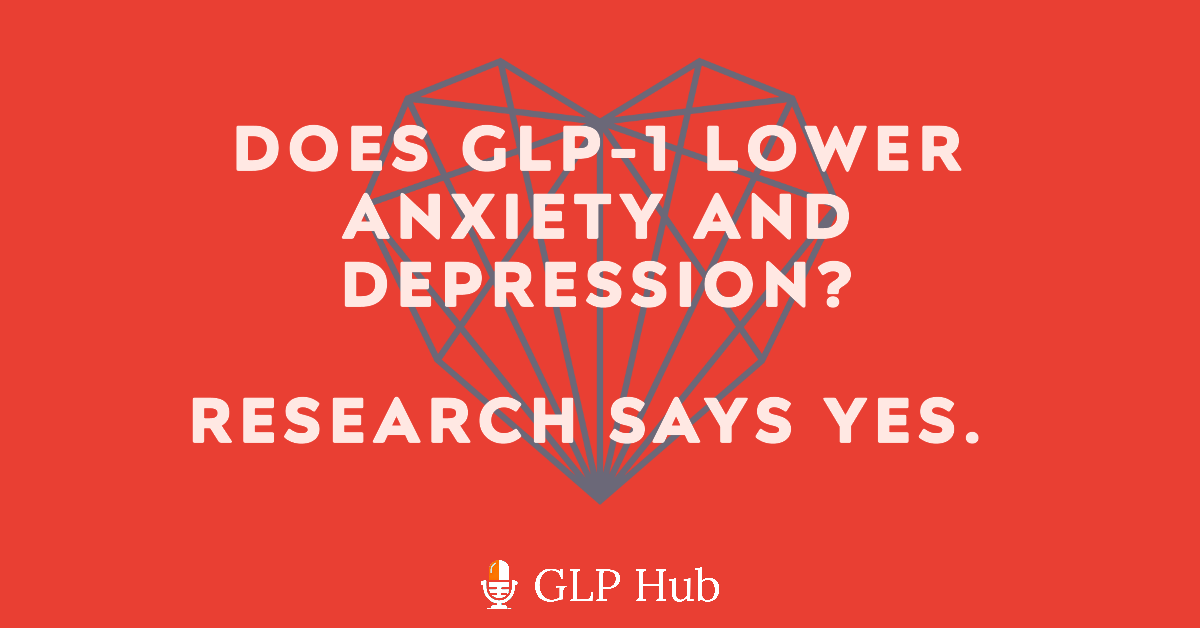Can you use semaglutide for weight loss if you don’t have diabetes? The short answer is yes.
While this drug was first approved for type 2 diabetes and marketed as Ozempic, new research shows it can also be highly effective for non-diabetic weight loss. This is why Wegovy – also made from the same drug, semaglutide – was approved by the FDA specifically for who have obesity or are overweight.
In this post, we’ll break down what you need to know about using semaglutide even if your blood sugar is normal. You’ll learn how it works, potential side effects to watch out for, typical weight loss results, and whether it might be right for you.
What Is Semaglutide?
Semaglutide is a glucagon-like peptide-1 (GLP-1) receptor agonist, which means it mimics the effects of a hormone called GLP-1 in the body. It stimulates the release of insulin when blood sugar levels rise, such as after eating, and slows digestion to help control blood sugar levels.
For weight loss
Although initially this process helped those with Type 2 Diabetes, it turns out that these changes also help with weight loss!
Semaglutide can also be used for chronic weight management in adults with obesity or who are overweight by slowing digestion and reducing appetite. The brand names Wegovy and Ozempic contain semaglutide and are FDA approved for weight loss.
Is Semaglutide Approved for Non-Diabetics?
Semaglutide was originally approved as a treatment for type 2 diabetes. However, in 2021, the FDA approved semaglutide (specifically Ozempic and Wegovy) as a weight loss medication for non-diabetics as well. This means that if you have excess weight to lose but do not have diabetes, semaglutide may still be an option for you.
Semaglutide for Non-Diabetics
In 2021, FDA approved semaglutide as a weight loss medication for non-diabetics as well.
This means that if you have excess weight to lose but do not have diabetes, semaglutide may still be an option for you.
How Semaglutide Works for Weight Loss
Semaglutide activates areas of your brain involved in appetite regulation and food intake. This can lead to reduced hunger and decreased food cravings. It also slows the emptying of your stomach and the passage of food into the small intestine, which makes you feel full longer after eating.
The weight loss effects of semaglutide tend to be the greatest when you first start taking it and decrease slightly over time. Lifestyle interventions like diet and exercise are still recommended to maximize and maintain weight loss.
Keep in mind that semaglutide also may lower blood sugar levels (it was approved for diabetes management after all), so blood sugar monitoring is important, especially when first starting the medication.
Clinical Trial Results
In clinical trials, participants without diabetes who took semaglutide lost an average of 12-15% of their body weight over 68 weeks. This amounted to around 15-20 kilograms (33-44 pounds) for most people.
Participants also saw reductions in risk factors for heart disease like high blood pressure and prediabetes.
Diabetes and Semaglutide: Clinical Trial Results
In clinical trials, participants without diabetes who took semaglutide lost an average of 12-15% of their body weight over 68 weeks.
Possible Side Effects
The most common side effects of semaglutide include nausea, diarrhea, vomiting, and constipation. These side effects are usually temporary but can be minimized by starting with a low dose and slowly increasing as your body adjusts.
Semaglutide may also lead to gallstones or kidney problems in some people. You should talk to your doctor about whether the benefits outweigh the risks for your situation.
Is Ozempic (Semaglutide) Safe for Non-Diabetic Use?
While semaglutide produces weight loss in non-diabetic patients, the question is: how safe is semaglutide for people without diabetes?
Limited data
Semaglutide is a relatively new drug, only approved for weight loss in 2021. This means we have limited data on its long term effects, especially in non-diabetics. Early research is promising, with few serious side effects reported in studies so far. However, more time is needed to fully understand the risks.
Possible side effects
The most common side effects of semaglutide are gastrointestinal issues like nausea, diarrhea, and vomiting. These tend to be mild to moderate and go away over time. There is also a risk of gallstones and pancreatitis. You’ll need to be monitored closely, especially when first starting the drug.
It’s not for everyone
Semaglutide may not suit everyone and you’ll need to discuss it carefully with your doctor. It is not recommended if you have a history of pancreatitis or medullary thyroid carcinoma. You should also avoid it if pregnant or breastfeeding. People with kidney or liver problems may need a lower dose under medical supervision.
You’ll need close monitoring, especially when first starting treatment. However, when used properly under medical guidance, semaglutide could be an option for those struggling with obesity and related health issues.
The Deep Dive: How Semaglutide Helps With Weight Loss in Non-Diabetics
As we discussed, semaglutide works by mimicking the effects of glucagon-like peptide-1 (GLP-1), a hormone produced in your gut that helps control appetite and food intake. But what does this actually mean!? 🤔
When you eat, GLP-1 levels rise, signaling your body that you’re full and stimulating insulin secretion. This helps regulate blood sugar levels and reduces appetite.
Slows Stomach Emptying
Semaglutide slows the emptying of your stomach and the passage of food into the intestines. This makes you feel full faster and longer, reducing your appetite and calorie intake at meals. With less hunger and a slower rate of eating, you end up consuming fewer calories overall which leads to weight loss over time.
Suppresses Appetite
Semaglutide also acts on appetite control centers in your brain to decrease feelings of hunger. It makes you feel more satisfied with less food. This can help change your eating behaviors and habits over the long run. You may find yourself no longer craving unhealthy snacks or feeling the urge to overeat at meals.
Improves Glucose Control
Although semaglutide was originally developed to treat type 2 diabetes, it provides the added benefit of improving blood sugar control and insulin sensitivity in non-diabetics as well. Stable blood sugar and insulin levels prevent energy crashes that can stimulate appetite and overeating. Semaglutide creates a virtuous cycle of appetite suppression, reduced calorie intake and improved metabolic health.
By mimicking your body’s natural satiety mechanisms, semaglutide helps you feel less hungry, slows your eating, and gives you control over your appetite and calorie intake again. This multi-pronged approach is why semaglutide can be so effective for weight loss, even without diabetes. Ask your doctor if semaglutide may be right for you.
FAQs
Who can use semaglutide for weight loss?
Semaglutide, in the form of Ozempic or Wegovy, was originally developed as a treatment for Type 2 diabetes. However, at higher doses, semaglutide has been shown to lead to weight loss in overweight or obese adults, even those without diabetes.
The studies leading to FDA approval of Wegovy for weight management were done in non-diabetic patients. So, if your BMI is over 27 and you want to lose weight, semaglutide could be an option for you, with your doctor’s recommendation.
How much weight can I lose?
In clinical trials, participants lost an average of 12-15% of their body weight over 68 weeks. The amount of weight loss depends on factors like your starting weight, dose, diet, and exercise. You can expect to lose 1-2 pounds per week, and the loss may be greater at higher doses. The effects seem to plateau after about a year of treatment in most people.
What are the side effects?
The most common side effects of semaglutide for weight loss are gastrointestinal issues like nausea, diarrhea, and vomiting. These tend to be temporary, but can be minimized by slowly increasing the dose. Less often, people experience fatigue, dizziness, and constipation. Semaglutide may also cause thyroid disease and inflammation of the pancreas in some people. You will need to be monitored by your doctor for these possible side effects.
How is it administered?
Semaglutide comes as a once-weekly injection, given under the skin. You will get a prescription from your doctor and receive training on how to properly inject yourself before starting the medication. The injection site should be rotated each week. The starting dose is usually 0.25 or 0.5 mg, and is increased slowly over 16 weeks to the target dose of 2.4 mg.
How long do I need to stay on semaglutide?
Semaglutide is meant to be used long-term to maintain weight loss. Most people stay on it for at least 2-5 years. When you stop taking semaglutide, weight regain is common if you do not make permanent lifestyle changes. So, developing better diet and exercise habits during your treatment is key to keeping weight off in the long run.





